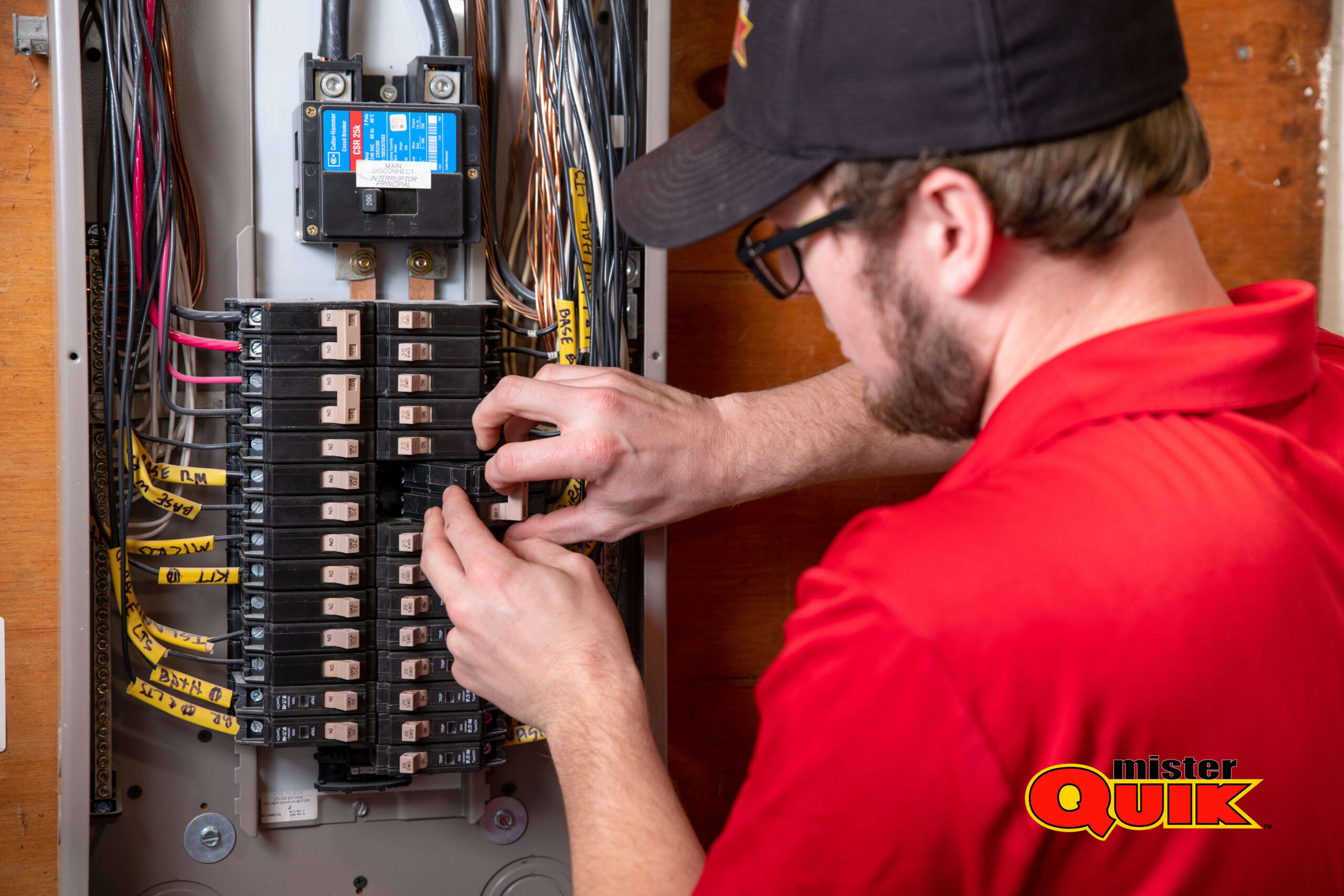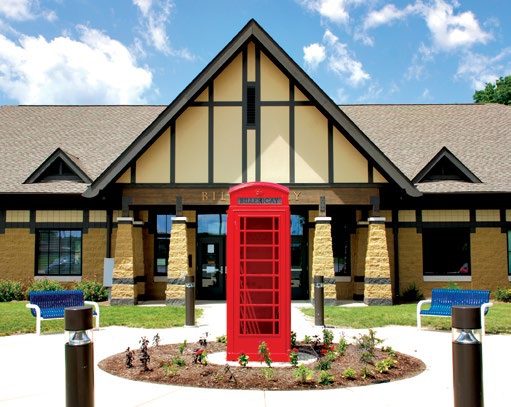Fishers Generator Installers

Fishers Generator Installers Near Me
Experiencing frequent power outages can be inconvenient and disruptive to daily life. In such situations, having a home generator installed can provide a reliable backup power source, ensuring that essential appliances and systems continue to function during blackouts.
Key Benefits of Home Generators:
- Continuous Power Supply: Home generators automatically kick in during power outages, providing uninterrupted electricity to keep lights on, appliances running, and essential systems like heating and refrigeration functioning.
- Peace of Mind: Knowing that you have a backup power source in place can offer peace of mind, especially during severe weather events or other emergencies that may cause prolonged power disruptions.
- Protecting Your Home: Power outages can lead to issues like food spoilage, frozen pipes, and security system failures. A home generator helps mitigate these risks by maintaining power to critical systems.
- Convenience: With a home generator, you don’t have to worry about manually starting a backup power source during an outage. The system automatically detects the loss of power and activates, minimizing downtime.
Installation Process:
- Assessment: Before installing a home generator, a professional technician will assess your home’s power needs and determine the best location for installation.
- Selection: Based on the assessment, the technician will recommend a generator size and type that suits your requirements and budget.
- Installation: The installation process involves connecting the generator to your home’s electrical system and ensuring proper wiring and setup for optimal performance.
- Testing: Once installed, the technician will conduct thorough testing to verify that the generator functions correctly and seamlessly transitions to backup power mode during outages.
- Training: Finally, the technician will provide you with instructions on operating the generator and any maintenance requirements to ensure its continued reliability.
Conclusion:
Home generators offer a reliable solution for homeowners looking to safeguard their households against power outages. By automatically providing backup power during emergencies, these systems help maintain comfort, safety, and convenience even when the grid goes down. If you’re considering installing a home generator, contact Mister Quik home Services for professional assistance.
Generator Types
Are you in need of a reliable backup power source for your home or business? Understanding the different types of generators available can help you make an informed decision. Here’s a simple guide to the most common generator types:
Portable generators are versatile and easy to move, making them ideal for temporary power needs. They typically run on gasoline or propane and are suitable for powering essential appliances and electronics during emergencies or outdoor activities. While they offer flexibility, portable generators may not provide enough power for larger homes or businesses.
Standby generators are permanently installed outside your home or business and automatically activate during power outages. These generators are connected to your existing electrical system and run on natural gas, propane, or diesel fuel. Standby generators are designed to provide continuous, high-capacity power, making them suitable for larger properties and critical applications.
Whole house generators, also known as home standby generators, are designed to power your entire home during outages. These generators are permanently installed outside your home and automatically switch on within seconds of a power loss. Whole house generators are capable of running all your appliances, heating and cooling systems, and other electrical devices without interruption.
When selecting a generator for your home, consider factors such as power capacity, fuel type, noise level, and installation requirements. Consulting with Mister Quik Home Services can help you identify the best generator type and size for your specific needs and budget. Whether you need a portable backup for occasional use or a robust standby generator for continuous power, there's a generator type that's right for you.
The cost of Fishers Generator Installers can vary widely based on factors such as the generator’s size, fuel type, installation requirements, and any additional features. Small portable generators can cost a few hundred dollars, while larger standby generators for residential or commercial use can range from a few thousand to tens of thousands of dollars. Fishers Generator Installers costs, which may involve electrical work, permits, and labor, can add significantly to the overall expense.
The size of the generator needed to run a refrigerator depends on the refrigerator’s wattage rating, which typically ranges from 100 to 800 watts. To determine the appropriate generator size, one should check the refrigerator’s specifications for its starting (surge) wattage and running wattage. A generator with a capacity equal to or slightly higher than the starting wattage is recommended to handle the initial power surge when the refrigerator’s compressor kicks in.
Oversizing a whole house generator, is generally not recommended. A generator should be appropriately sized to match the specific power requirements of the home it serves. An oversized generator may operate inefficiently at partial loads, leading to increased fuel consumption, maintenance issues, and higher upfront costs. An adequately sized generator provides optimal performance and efficiency while ensuring reliable power during outages.
A typical whole-house generator for an average-sized home might range from 20 to 30 kilowatts. However, it’s crucial to conduct a thorough load analysis with the help of a qualified electrician to accurately assess the power requirements of the specific household. This analysis considers peak loads, starting currents for appliances like air conditioners and refrigerators, and other factors to ensure the generator can handle the overall electrical demand, providing a reliable power supply during outages.
As a general guideline, a 20-22 kW generator is often suitable for a mid-sized home, providing enough power to run essential appliances like refrigerators, air conditioning, lights, and other critical systems. However, it’s advisable to conduct a load calculation by considering the wattage requirements of specific appliances and systems to determine the most accurate generator size for your household needs. Consulting with a professional Fishers Generator Installers can help ensure that you choose the right generator capacity for your specific situation.
Fishers Generator Installers Best Generators
Factors to Consider When Choosing a Generator:
When selecting the best generator for your needs, consider the following factors:

Determine the wattage requirements of your essential appliances and devices to ensure the generator can meet your needs.
Consider whether you prefer gasoline, propane, or diesel fuel, and choose a generator that aligns with your preferences and availability.
If you anticipate needing backup power on the go, opt for a portable generator that’s easy to transport and store.
Generators vary in noise levels, so consider your tolerance and any noise regulations in your area.
For standby generators, enlist the help of Mister Quik Home Services to ensure proper installation and functionality.
By carefully evaluating your needs and exploring your options, you can find the best generator to provide reliable backup power whenever you need it.
Whole House Fishers Generator Installers Near Me
When it comes to safeguarding your home against power outages, whole house generators offer reliable backup power solutions. Here’s what you need to know about hiring Mister Quik Home Services:

Extensive experience and expertise in Fishers Generator Installers. Knowledgeable about different generator brands, installation techniques, and local building codes.

Read customer reviews to gauge our reputation and reliability. Consider asking for recommendations from friends, family, or neighbors who have recently installed whole house generators.

Ensure that the Fishers Generator Installers you choose are properly licensed and certified to perform installation work in your area. Licensed professionals adhere to industry standards and regulations, ensuring safe and reliable installations.

We offer comprehensive services, from initial consultation to post-installation support. We handle every aspect of the installation process, including site assessment, generator selection, and electrical wiring.

We offer customized solutions tailored to your home's specific power needs and budget. We assess your property and recommend the most suitable generator size and type to meet your requirements.

We offer same-day availability and turnaround time for installation. We can complete the installation process promptly to minimize downtime and ensure your home is protected.
We offer maintenance services and ongoing support to keep your system running smoothly. Regular maintenance helps prolong the lifespan of your generator and ensures optimal performance during emergencies.
By considering factors such as expertise, reputation, licensing, and services offered, you can find reliable Fishers generator installers near you. Don't wait until the next power outage strikes—take proactive steps to protect your home with a whole house generator installation today.
Generator Cost
Understanding the cost of Fishers Generator Installers can help you make informed decisions about protecting your home from power outages. Here’s what you need to know about the factors that influence Fishers Generator Installers cost:
Generator Type:
- Different types of generators come with varying price tags. Portable generators are generally more affordable than standby or whole house generators.
- Consider your power needs and budget when choosing the right generator type for your home.
Power Capacity:
- The size and power capacity of the generator directly impact its cost. Larger generators capable of powering entire homes will typically cost more than smaller units.
- Assess your power requirements to determine the appropriate generator size for your needs.
Fuel Type:
- Generators can run on various fuel types, including gasoline, propane, natural gas, and diesel. The cost of fuel can influence the overall operating expenses of your generator.
- Consider fuel availability and pricing in your area when selecting a generator fuel type.
Installation Complexity:
- The complexity of the installation process can affect the overall cost of installing a generator. Standby and whole house generators may require more extensive installation work compared to portable units.
- Factors such as site preparation, electrical wiring, and permit requirements can contribute to installation costs.
Maintenance and Upkeep:
- In addition to the initial purchase and installation costs, consider ongoing maintenance and upkeep expenses when budgeting for a generator.
- Regular maintenance ensures the longevity and reliable performance of your generator, potentially reducing long-term costs.
Quality and Brand:
- Higher-quality generators from reputable brands may come with a higher price tag upfront but often offer greater reliability and durability.
- Consider factors such as warranty coverage and customer reviews when evaluating the quality and value of different generator brands.
Fishers Generator Installers Fees:
- Hiring Mister Quik’s generator installers to handle the installation process ensures proper setup and adherence to safety standards.
- While there will be associated installation fees, investing in experienced installers can provide peace of mind and prevent costly mistakes.
Navigating Generator Costs:
By considering factors such as generator type, power capacity, fuel type, installation complexity, maintenance needs, and quality, you can better understand the overall cost of installing a generator for your home or business. Consulting with Mister Quik Home Services can provide valuable insights and assistance in selecting the right generator for your needs and budget.
Generator Maintenance
Regular maintenance is crucial to ensuring that your generator operates efficiently and reliably when you need it most. Here are some essential tips for maintaining your generator:
Regularly inspect your generator for signs of wear, damage, or corrosion. Check for loose connections, leaks, or debris that could affect its performance.
Follow the manufacturer's recommendations for oil and filter changes to keep your generator's engine running smoothly. Clean or replace the air filter as needed to prevent dirt and debris from entering the engine.
Keep your generator's fuel tank filled with fresh fuel and additives to prevent contamination and buildup. Consider using fuel stabilizers to prolong the shelf life of your generator's fuel supply.
Check the battery regularly for corrosion, leaks, or low fluid levels. Clean the battery terminals and connections to ensure a reliable power source for starting the generator.
Regularly run your generator under load to keep its internal components lubricated and prevent engine buildup. Aim for monthly exercise sessions lasting at least 30 minutes to maintain optimal performance.
Monitor the generator's cooling system for leaks, blockages, or overheating issues. Keep the cooling fins and radiator clean to promote efficient heat dissipation.
Schedule routine maintenance with Mister Quik Home Services to ensure thorough inspections and repairs. Our experienced technicians can identify and address potential issues before they escalate, minimizing downtime and costly repairs.
Keep a supply of spare parts, such as filters, spark plugs, and belts, on hand for quick replacements during emergencies. Have a backup plan in place for extended power outages, such as alternative power sources or temporary accommodations.
Proper maintenance is essential for maximizing the lifespan and performance of your generator. By following these maintenance tips and relying on the expertise of Mister Quik, you can ensure that your generator is always ready to provide reliable backup power when you need it most.
Finding a Reputable Generator Maintenance Service in Indianapolis
When choosing a generator maintenance service in Indianapolis, look for a company with qualified technicians experienced in working on your specific generator model.
Troubleshoot Checklist:
- Verify power source: Check if the generator is connected to a reliable power supply.
- Inspect fuel levels: Ensure an adequate fuel supply is available for the generator to operate.
- Check switch settings: Confirm that the generator’s switches are in the correct position for activation.
- Assess automatic activation: Ensure that the generator’s automatic activation feature is functioning properly.
- Inspect electrical connections: Check for loose or damaged wires and connections.
- Test circuit breakers: Reset circuit breakers if tripped and ensure proper electrical flow.
- Fuel quality check: Ensure the fuel being used is clean and free from contaminants.
- Fuel delivery assessment: Verify that fuel is reaching the generator’s engine without obstruction.
- Scheduled maintenance: Review maintenance logs to ensure regular servicing has been performed.
- Professional inspection: Consider scheduling a professional inspection by certified technicians for thorough assessment and repairs.









